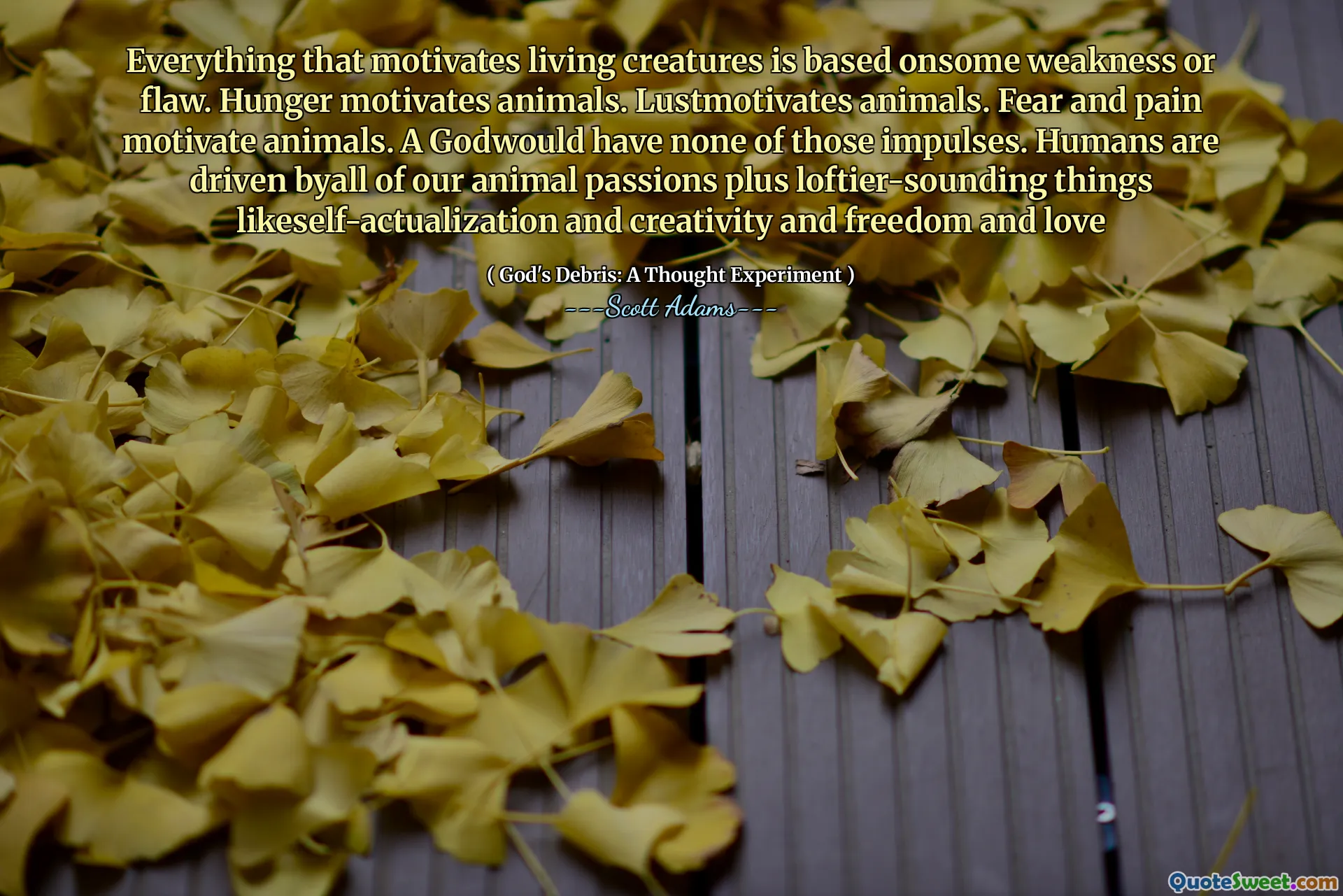
Everything that motivates living creatures is based onsome weakness or flaw. Hunger motivates animals. Lustmotivates animals. Fear and pain motivate animals. A Godwould have none of those impulses. Humans are driven byall of our animal passions plus loftier-sounding things likeself-actualization and creativity and freedom and love
In "God's Debris: A Thought Experiment," Scott Adams posits that all motivations for living beings stem from inherent weaknesses or flaws. He explains that basic impulses such as hunger, lust, fear, and pain drive animals. These primal instincts reflect a lack or a desire that compels creatures to act. In contrast, a God would be beyond these urges, unencumbered by such deficiencies.
Adams further expands this idea by addressing humans, who experience a blend of primitive desires alongside more elevated aspirations like self-actualization, creativity, and love. This complexity illustrates how human motivations encompass both animalistic instincts and higher pursuits, highlighting the duality of the human experience.











